The 1970s are over – it’s a new decade – and your local record store has stacks of new arrivals. Let’s check out the adverting for the fresh vinyl from the year 1980….

This was the Pretenders’ debut record, released on January 7th. It landed at number 1 on the UK Albums Chart within a week, and stayed there for 4 consecutive weeks.
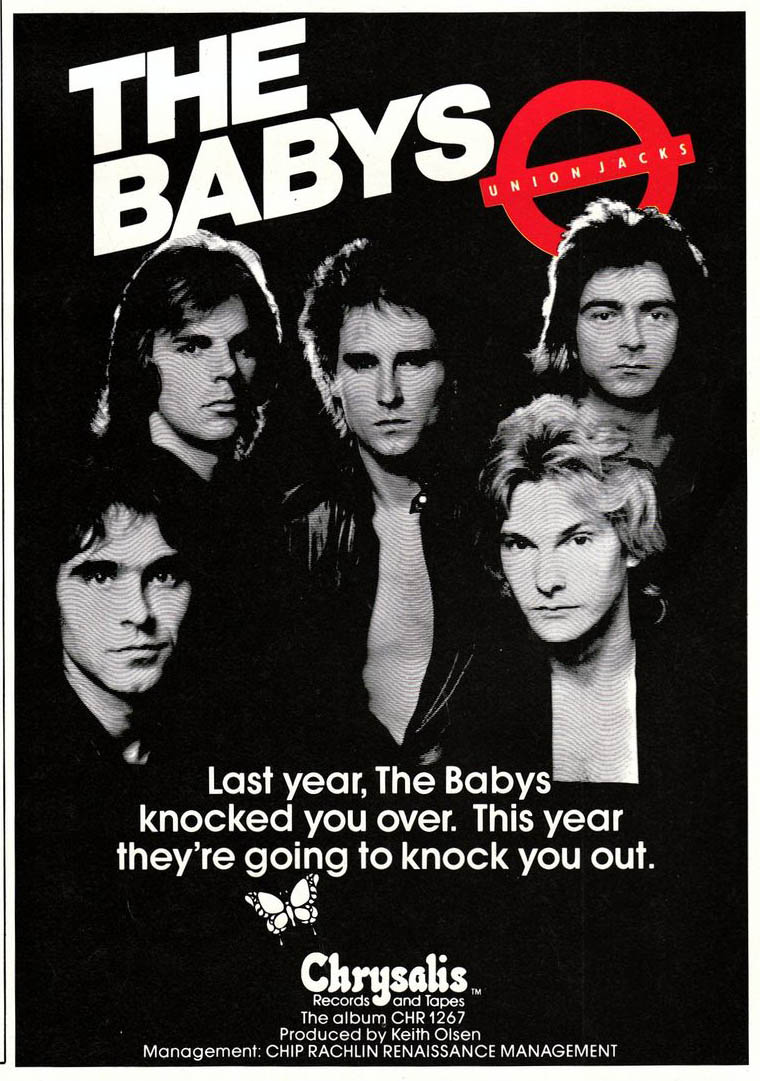
Released in January, this marked the beginning of the end for The Babys. This same year, they opened for Journey and John Waite was injured by an overzealous fan. They broke up soon after. Jonathan Cain (top left) would joined Journey and Waite would go solo (releasing “Missing You” a few years later).
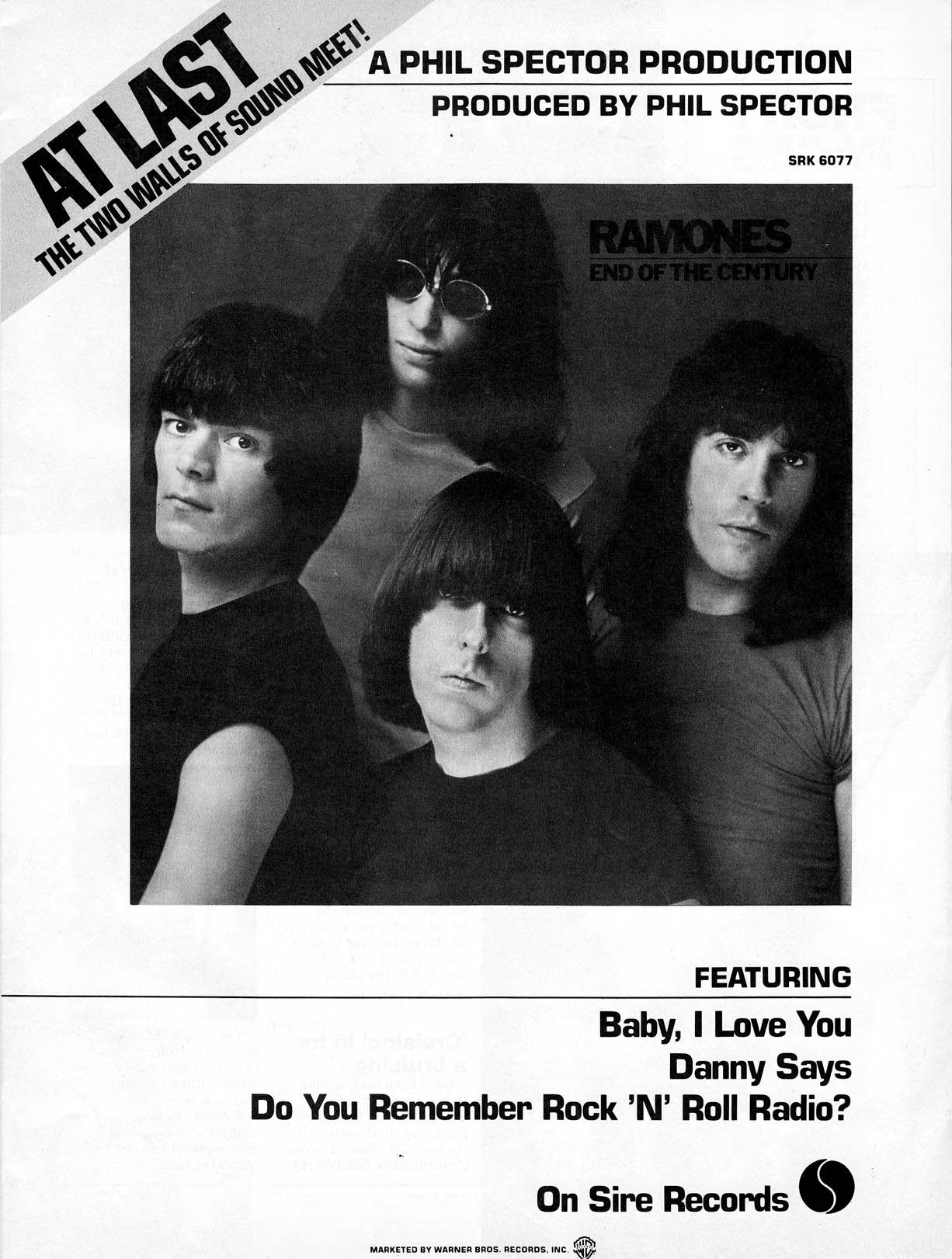
Released in February, End of the Century was supposed to bring The Ramones out of the punk niche and into the mainstream. It was produced by Phil Spector who allegedly held the band at gunpoint during the recording sessions:
“He leveled his gun at my heart and then motioned for me and the rest of the band to get back in the piano room … He only holstered his pistol when he felt secure that his bodyguards could take over. Then he sat down at his black concert piano and made us listen to him play and sing “Baby, I Love You” until well after 4:30 in the morning.” — Dee Dee Ramone
Marky Ramone subsequently denied this incident occurred. Regardless, the relationship between Spector and the band was contentious and often hostile. The album became The Ramones’ highest peaking album in the US as well as their most successful on the UK Albums Chart.
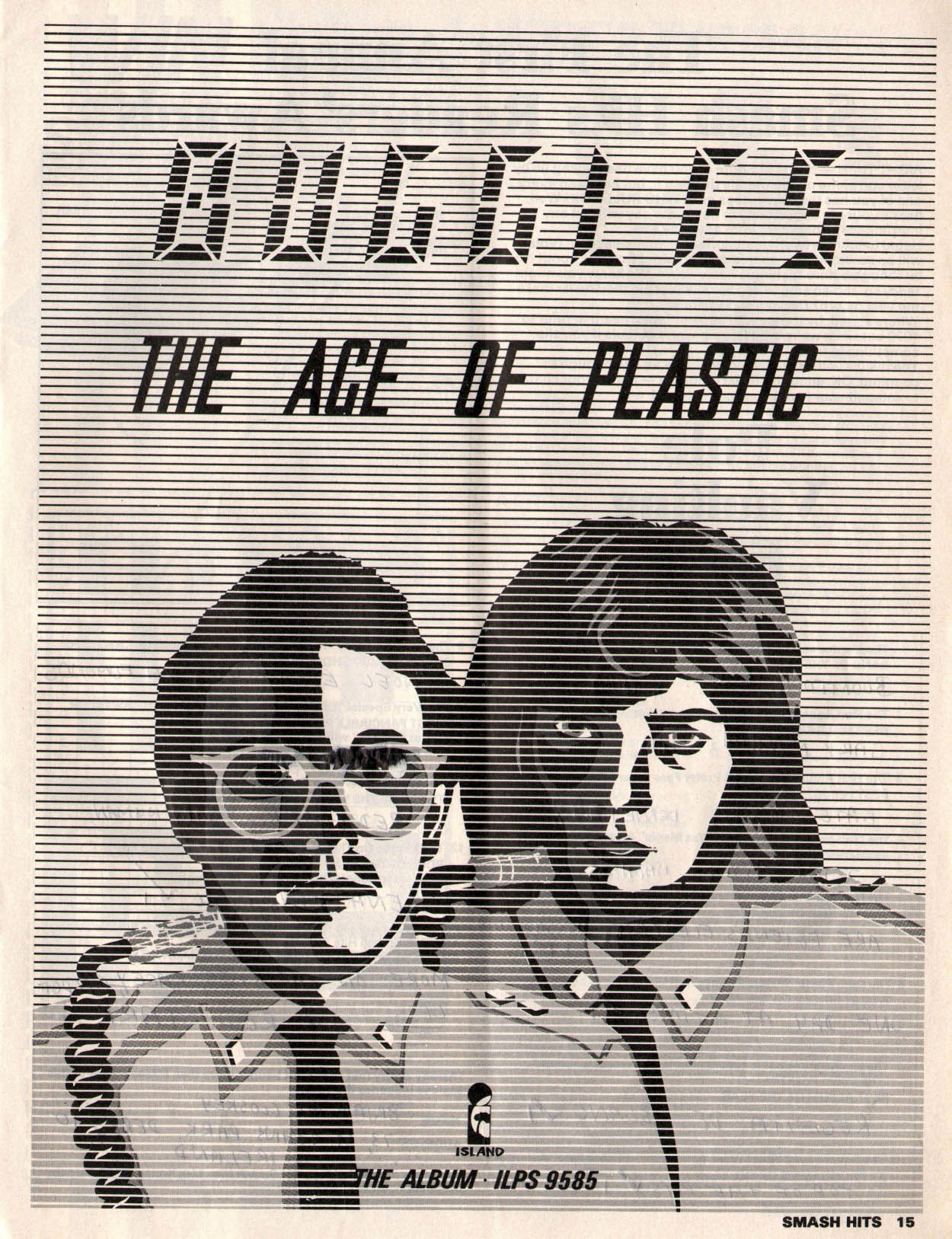
Released in January, the Buggles debut album actually followed in the wake of the massive success “Video Killed the Radio Star” which had come out in September 1979. Melody Maker said of the album: it’s “all jerky twitchings and absurdly inflated post-punk melodrama”.
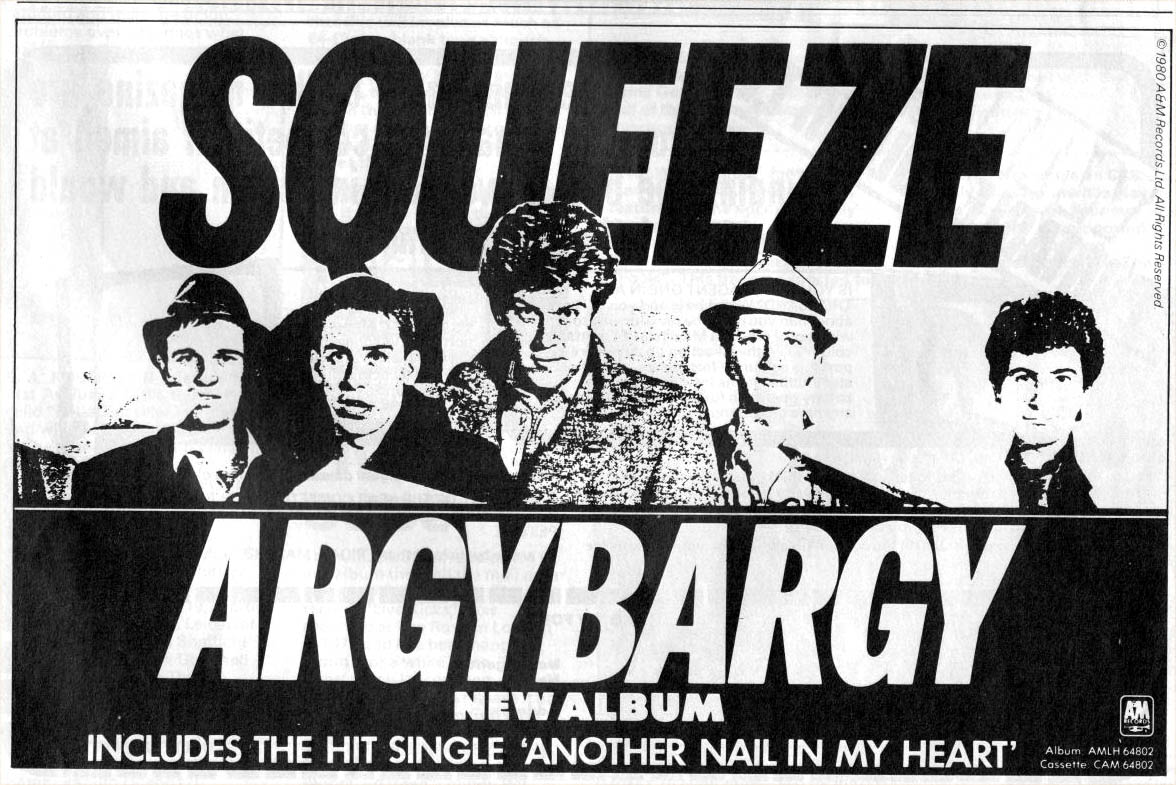
Released in February, Argybargy was Squeeze’s third LP. The previous year, Chris Difford and Glenn Tilbrook had been hailed as the heirs to Lennon and McCartney. Yet, they never achieved more than moderate success in the US. This album’s “Pulling Mussels (from the Shell)” did earn some US radio airplay.
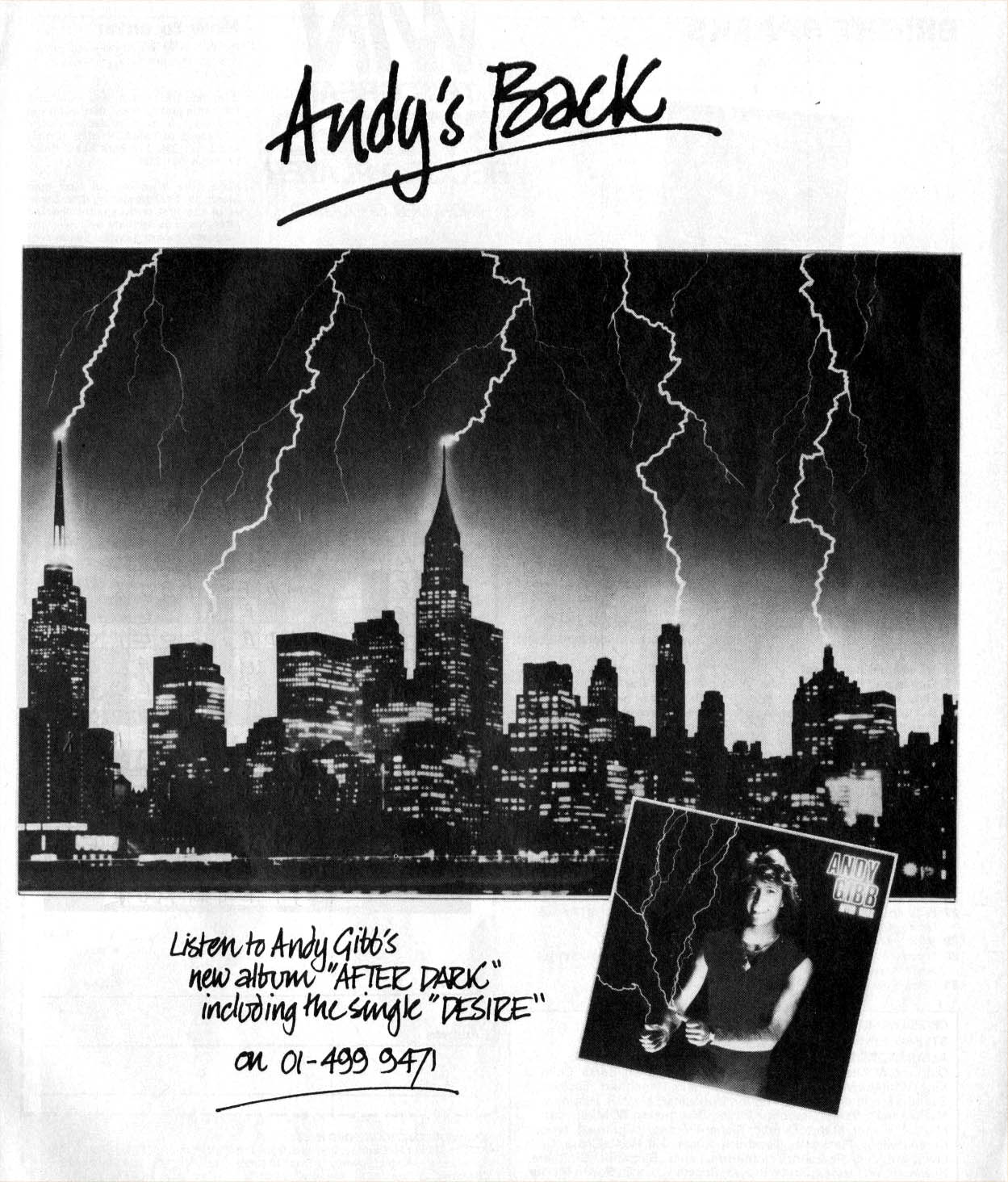
After Dark was released in February – a couple years after his previous LP’s massive success. What girl in the seventies didn’t have a copy of Andy Gibb’s Shadow Dancing? What a difference a couple years makes. Andy’s drug problem was out of control. Robert Stigwood was forced to drop him from the label, Solid Gold fired him due to not showing up, and Victoria Principal forced him to choose between her and drugs (he chose “B”). The album was a flop; he never recorded again and passed away from a drug overdose eight years later.
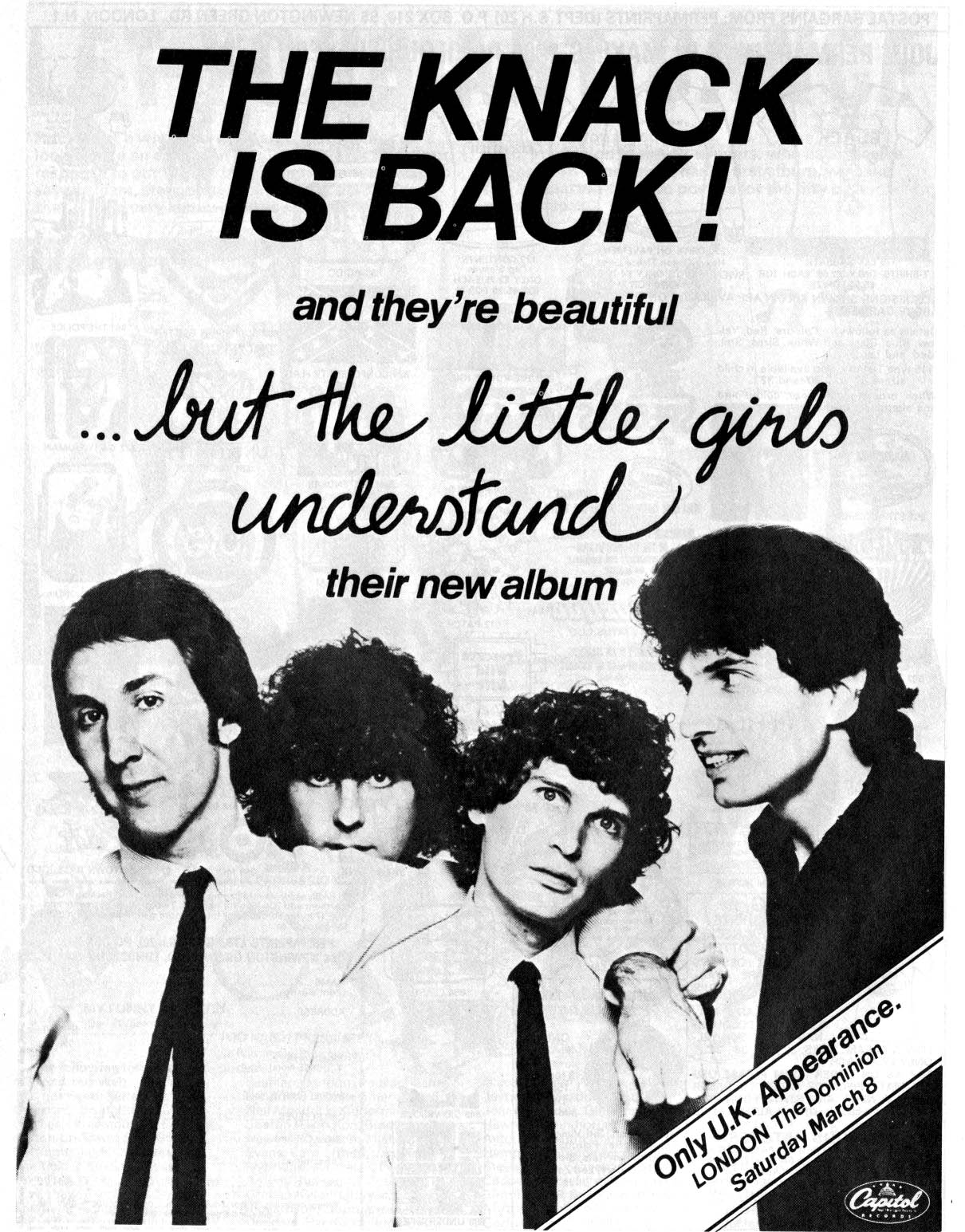
Released in February, But the Little Girls Understand was just plain unfortunate. “My Sharona” from the previous year was about as big a hit as you could get; however, the follow-up LP didn’t live up to the success. Indeed, all these songs were supposed to be on their previous record (as a double album), but were discarded. Now here are all the scrapped tracks hurriedly thrown together to capitalize on “My Sharona”. Needless to say, it didn’t live up to expectations, and when the next album failed in 1981, the band quit.
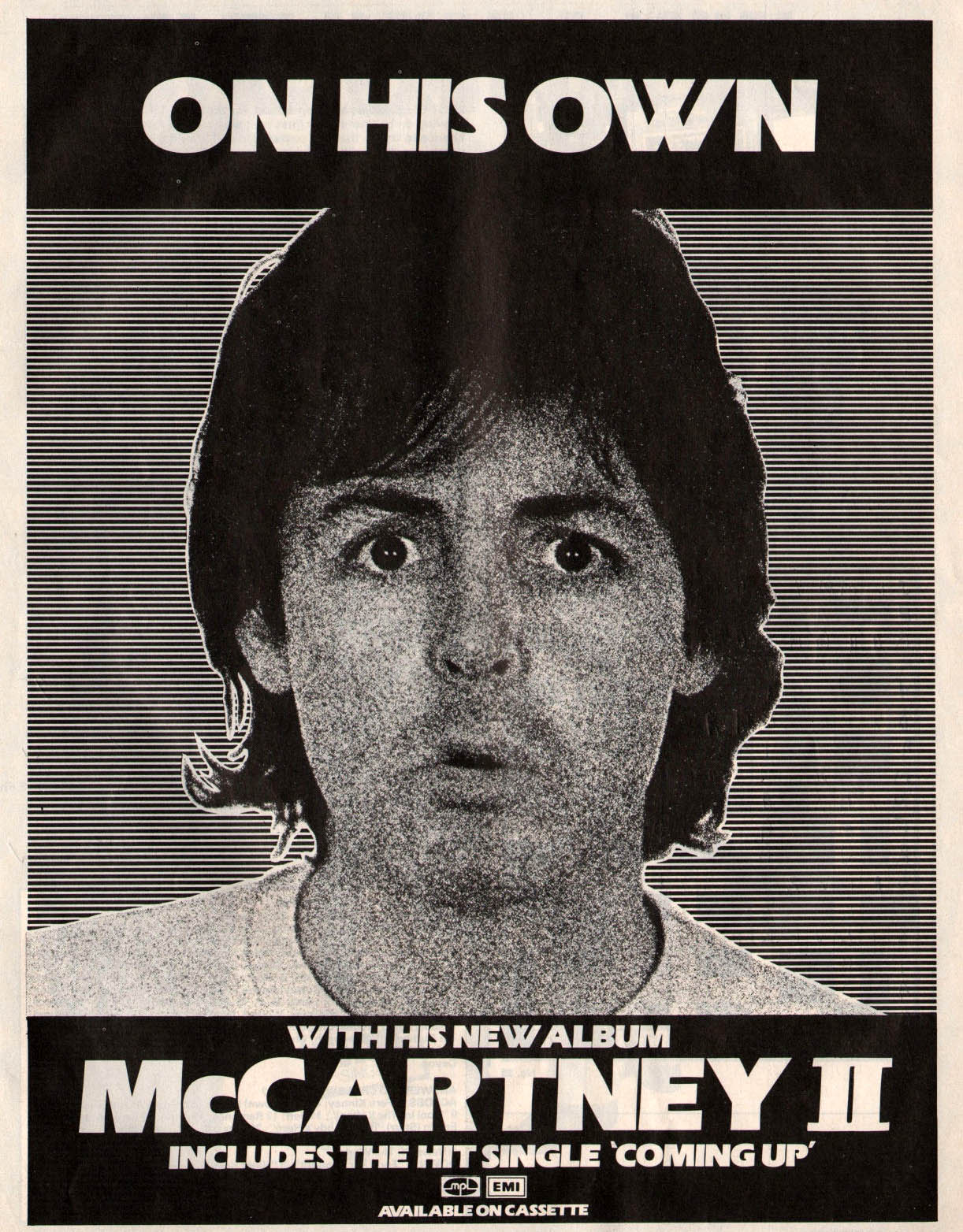
In January, McCartney was caught with 219 grams of marijuana and spent nine days in jail. Wings was at its end, and McCartney started recording his first solo record since 1970, playing all the instruments himself. McCartney II was supposed to be Paul’s acceptance of “New Wave”, embracing the electronic sound. Record World said it was “arguably the least well-received solo work of any Beatle.” It made a lot of money, but it’s overall reception was kind of “meh“.
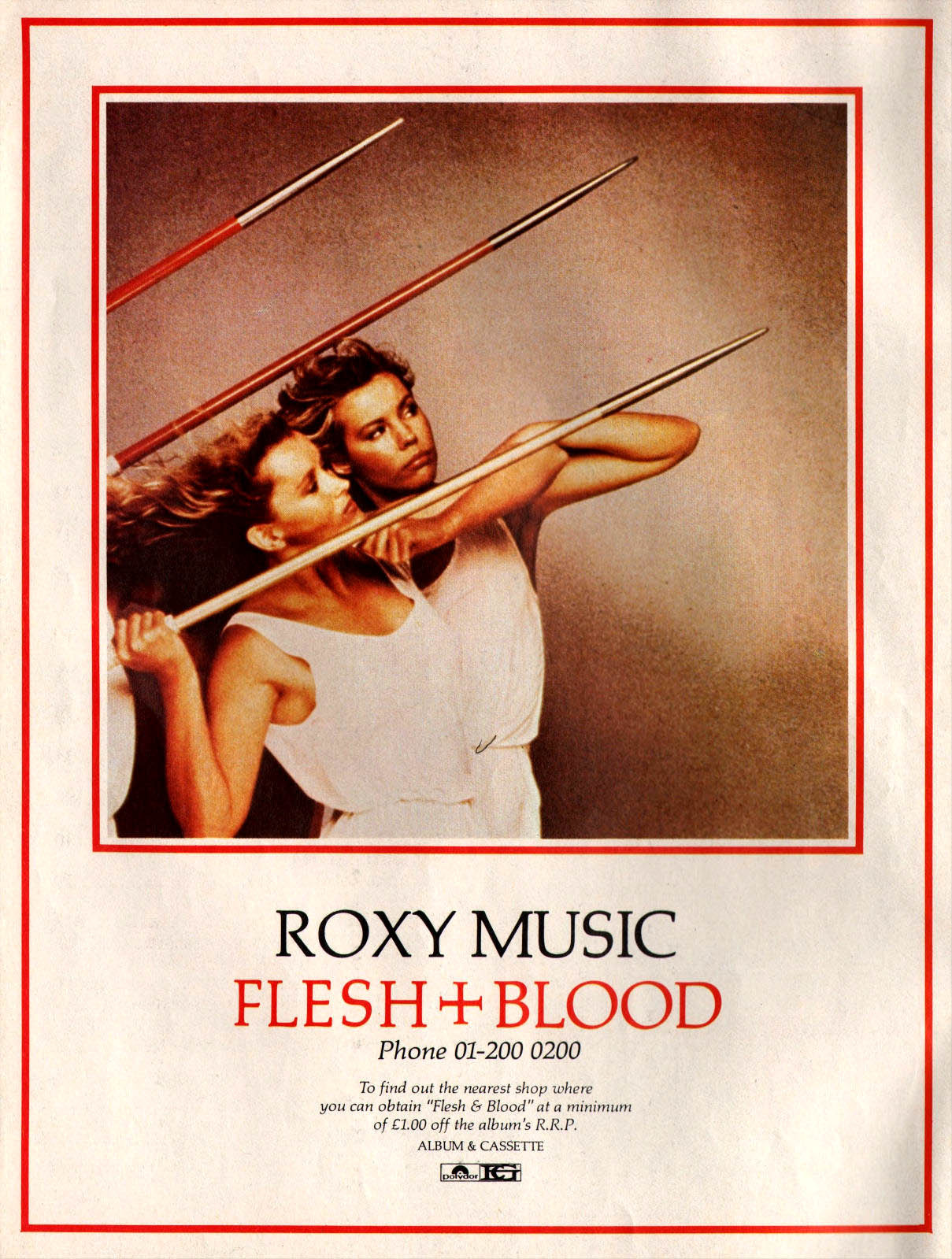
This was Roxy Music’s seventh record; once darlings of rock critics, Flesh + Blood marked an end to that. Rolling Stone said “Flesh + Blood is such a shockingly bad Roxy Music record that it provokes a certain fascination.” Regardless, this art-rock disco album achieved huge success in UK.
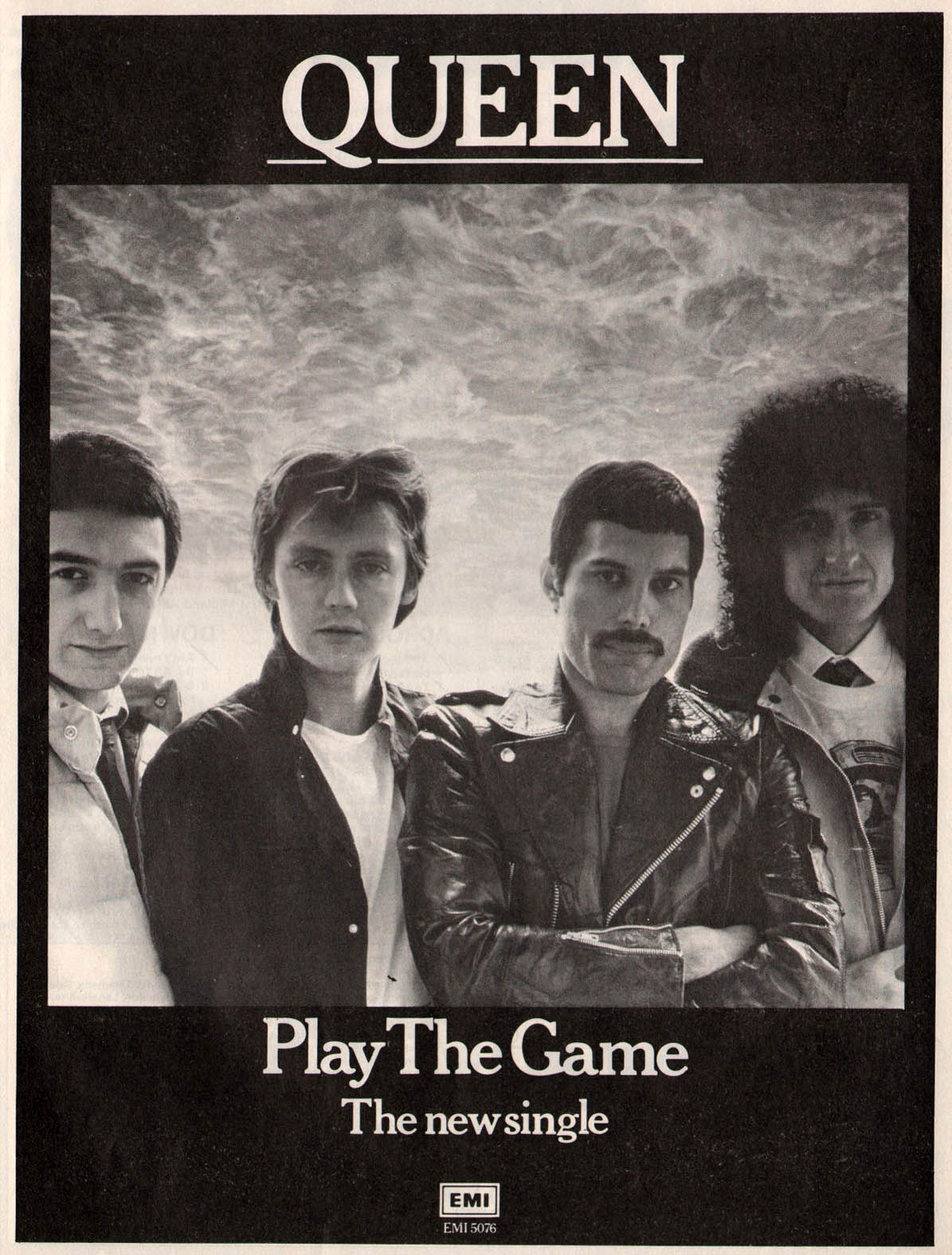
Released in June, The Game was Queen’s big breakthrough in the US – their only number one record in the States, launching two singles to the top spot: “Another One Bites the Dust” and “Crazy Little Thing Called Love”. The following year, the band would release their greatest hits record, becoming the best-selling album in UK Chart history, and has spent 450 weeks in the UK Album Chart.
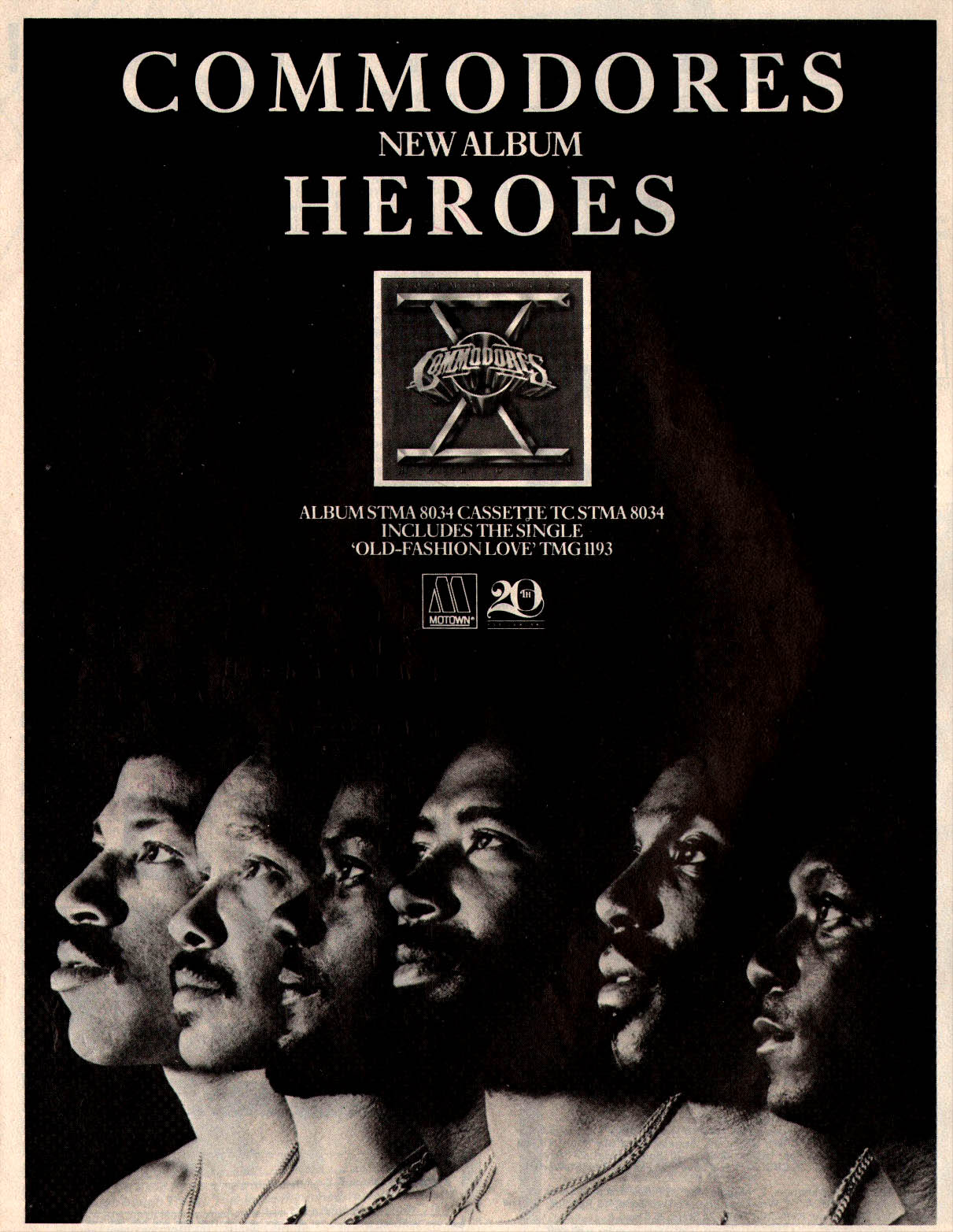
The Commodores had dominated the charts in the late seventies, but upon the arrival of the eighties, it seemed it was time to move on. This album had no standout hits; their follow up record did better with the awesome roller-skating rink classic “Lady (You Bring Me Up)”. In 1982, Lionel Richie would leave the group.
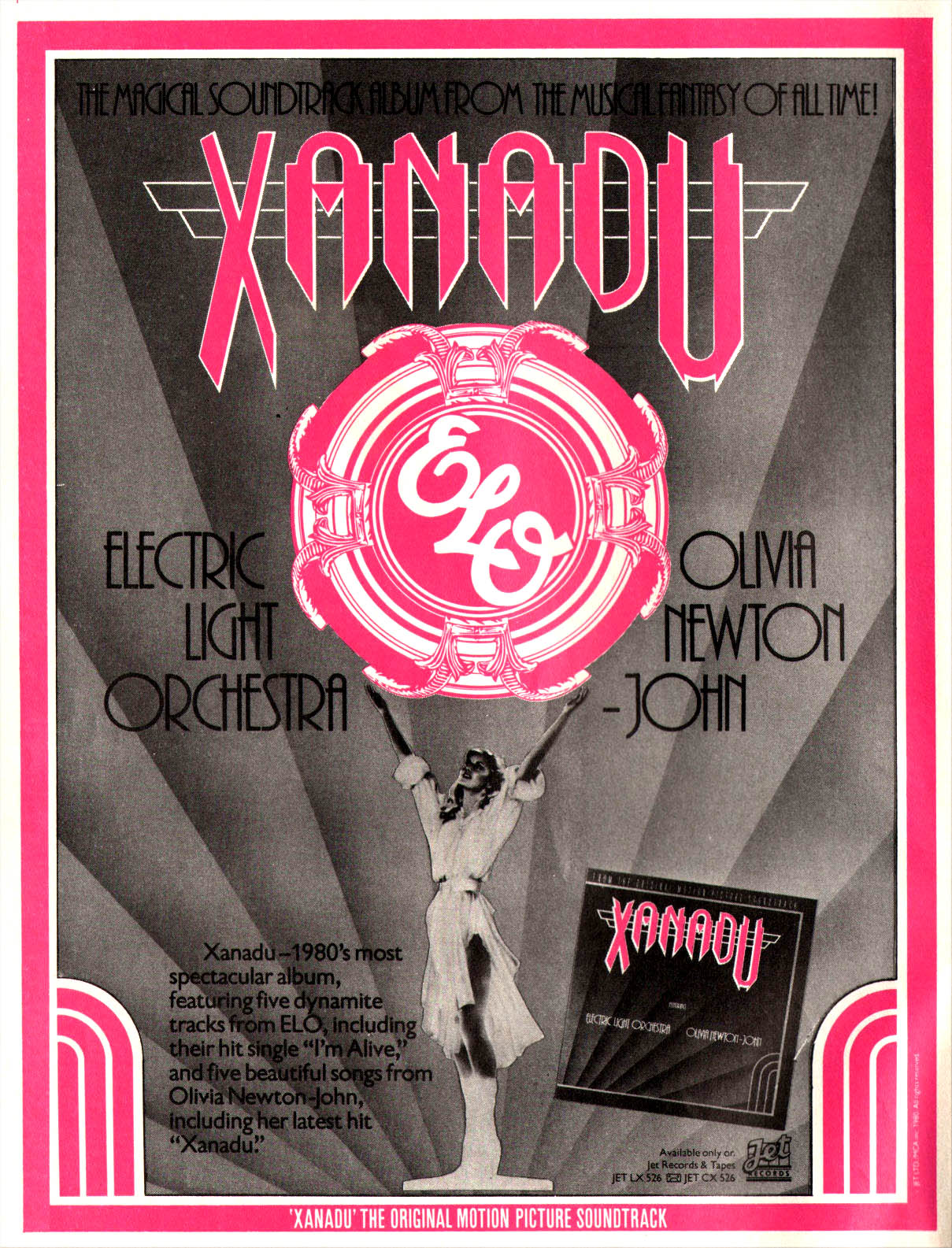
I’m not proud to say I went to see this bizarre flop in the theater back in 1980. The soundtrack, however, was a huge success, featuring Olivia Newton-John, ELO, Cliff Richard, and The Tubes.
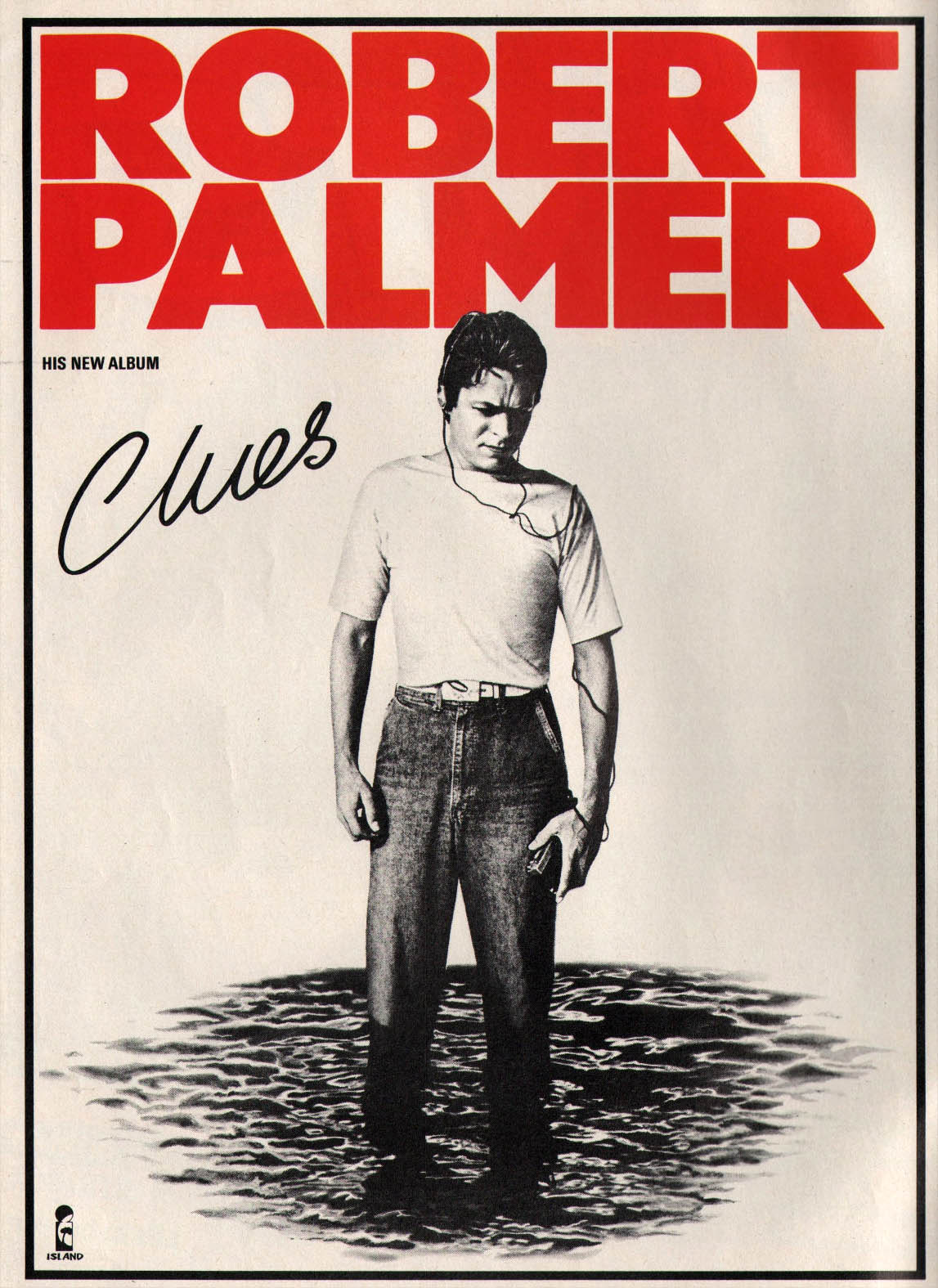
Robert Palmer’s sixth album came out in September. The record’s hit single, “Looking for Clues” has the distinction of being one of the first videos played on MTV. The LP definitely has a New Wave edge (much different from his previous records), even featuring Gary Numan on one of the tracks, “I Dream of Wires”.
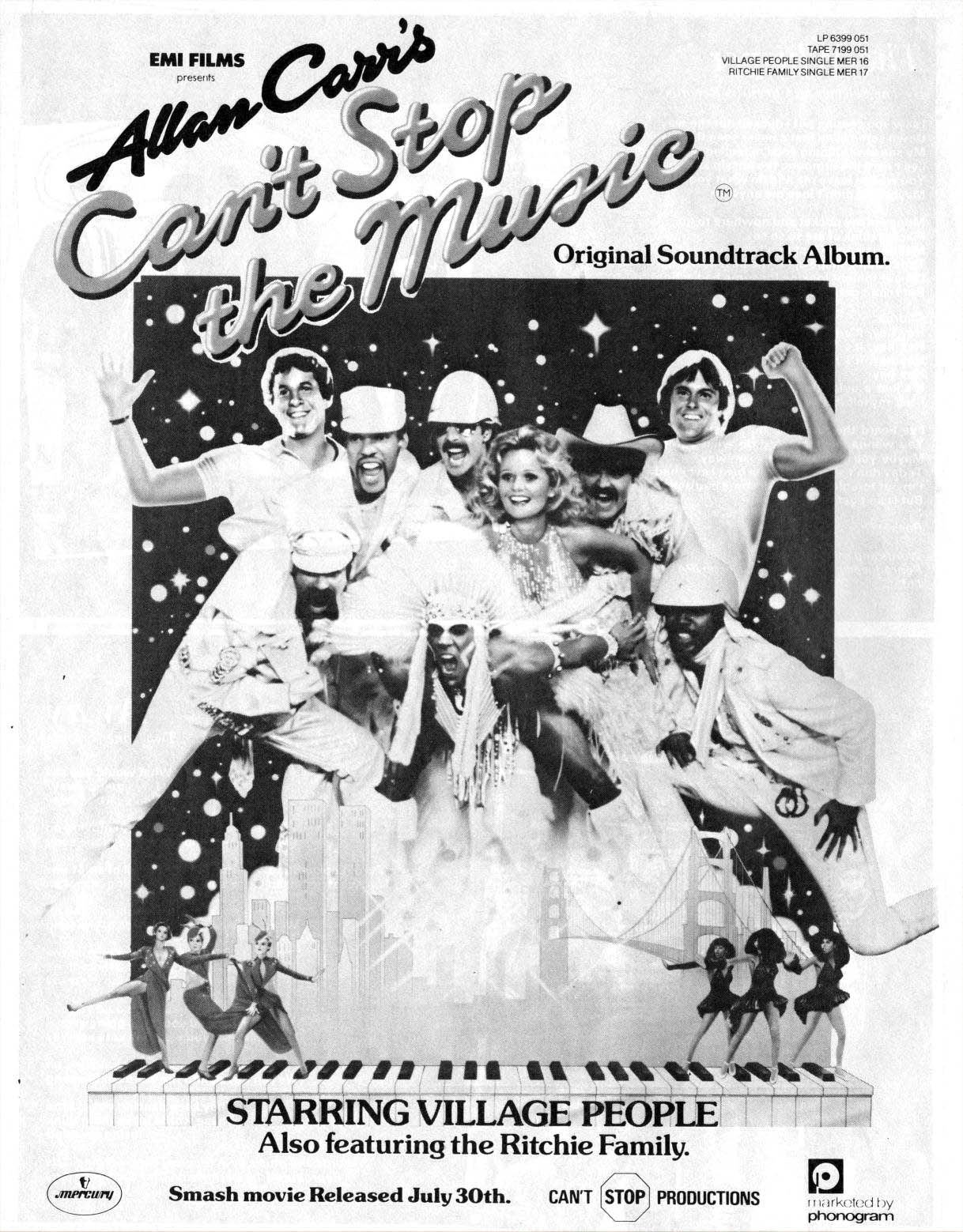
If I had to put a bookend to the 1970s, I wouldn’t set it at December 31st, 1979… it would be July 30th, 1980. This movie rolled all the pop culture excesses of the disco era and set them on fire; audiences could just stand back, rub their eyes and wonder what in the world they had been thinking for the past few years. For me, everything after can now be purely “eighties” without residual tarnish of the previous decade.
So, now that the eighties are truly upon us, freed from the seventies, let’s end with a few more ads for albums that rounded out the year. Cheers.
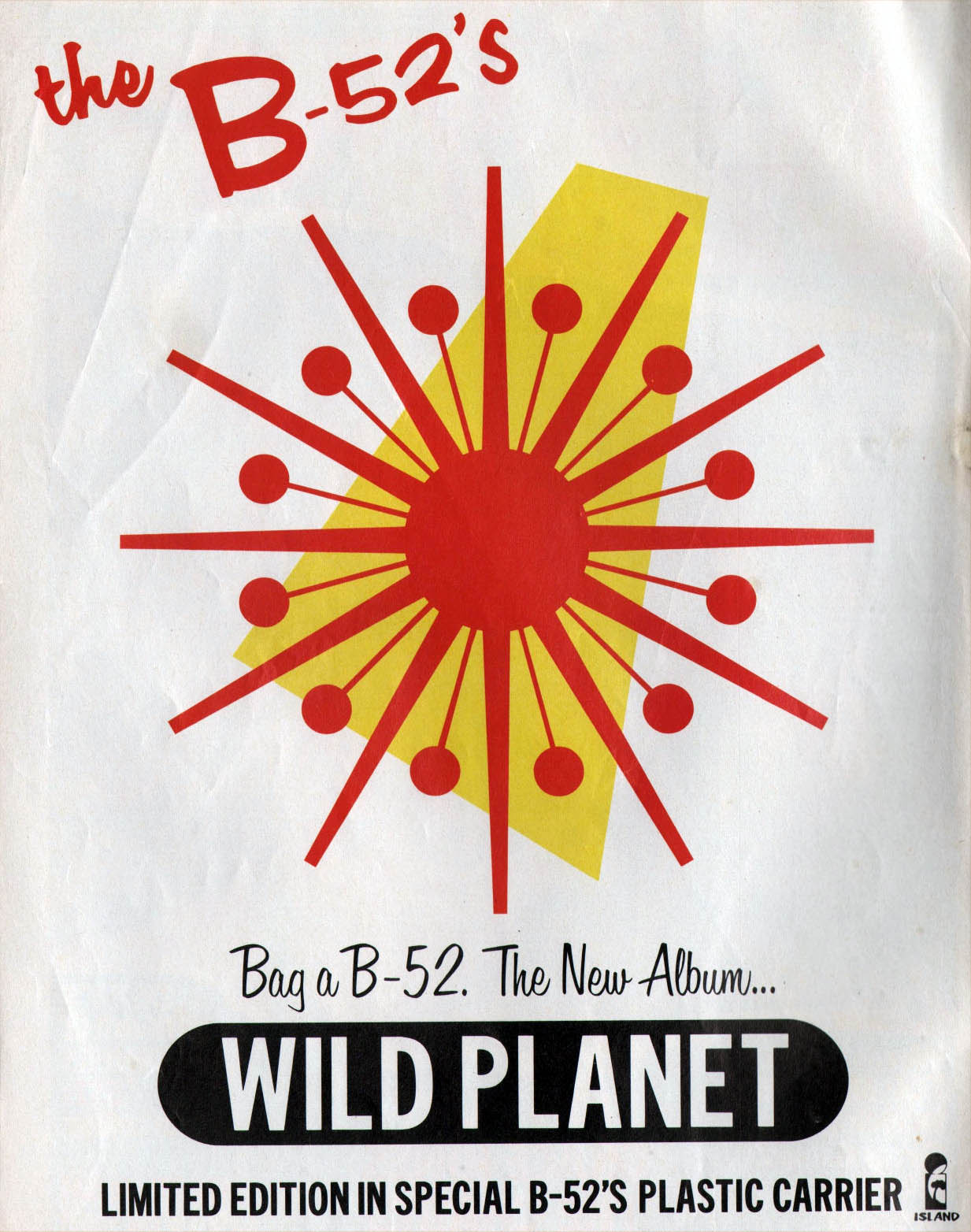
B-52’s – Wild Planet (August)
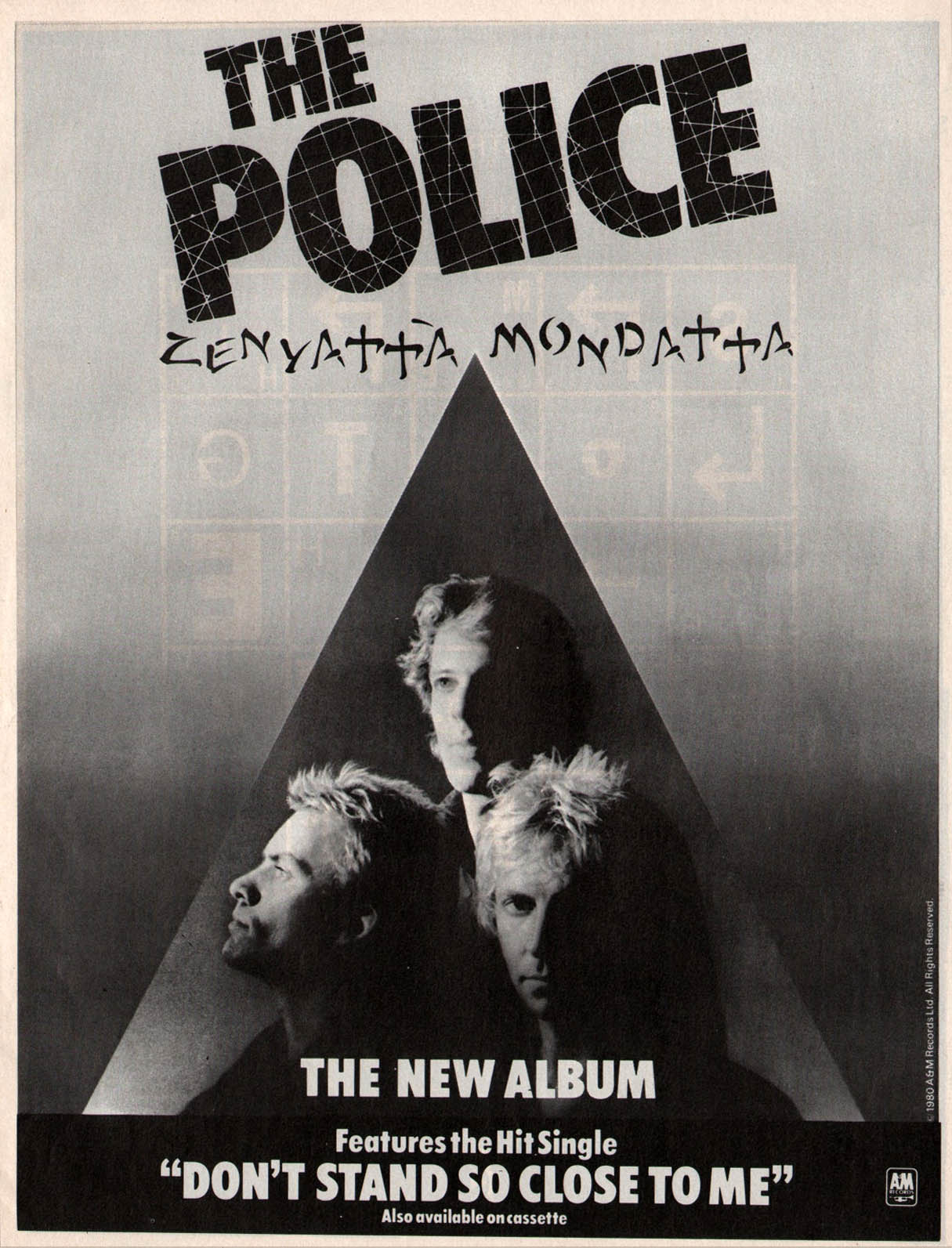
The Police – Zenyattà Mondatta (October)
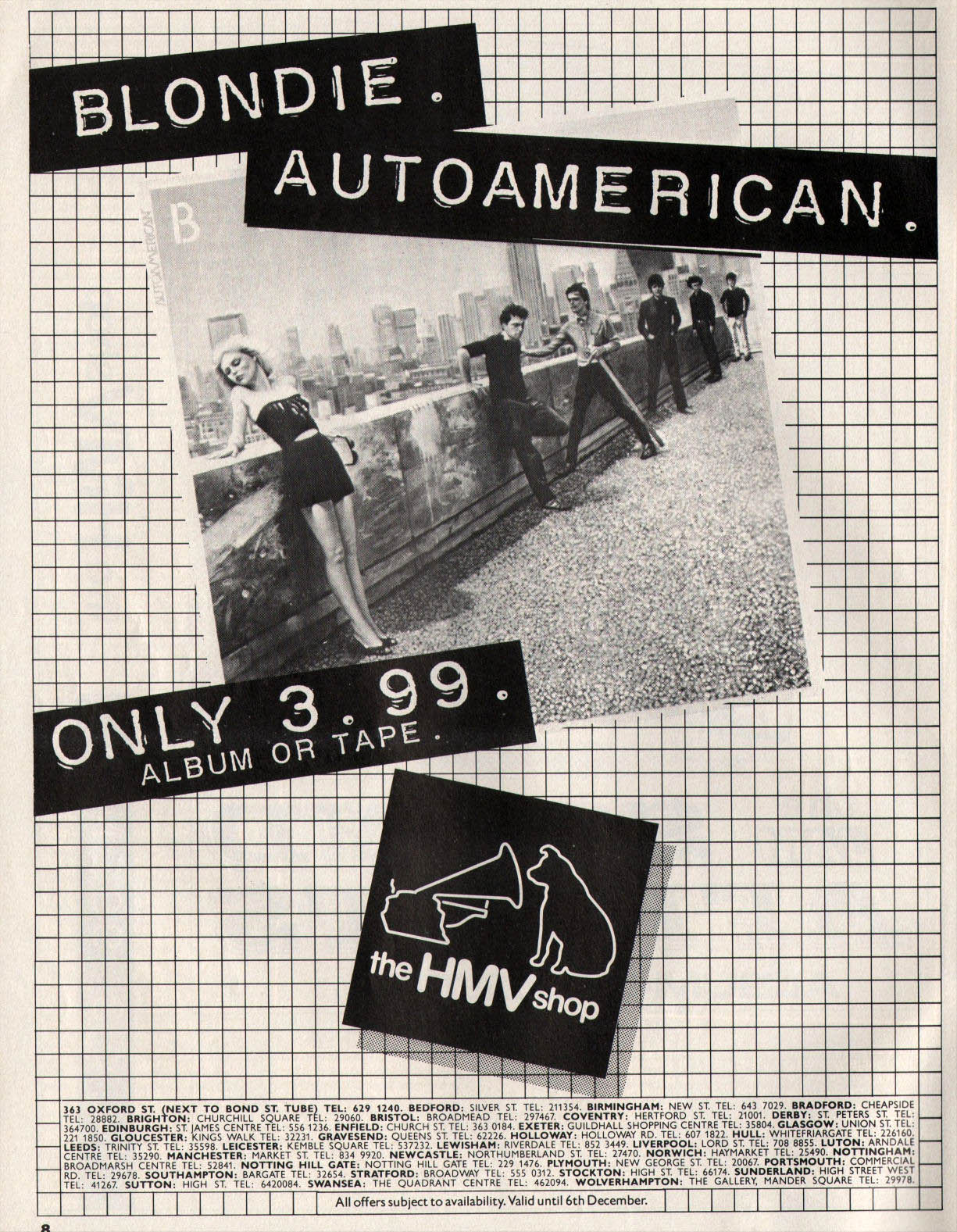
Blondie – Autoamerican (November)
Would you like to support Flashbak?
Please consider making a donation to our site. We don't want to rely on ads to bring you the best of visual culture. You can also support us by signing up to our Mailing List. And you can also follow us on Facebook, Instagram and Twitter. For great art and culture delivered to your door, visit our shop.











